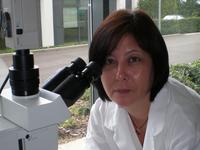It is essential that new supervisors are provided with the necessary development opportunities to supervise at doctoral level and that established supervisors regularly maintain these skills and have continuing awareness of BU’s Codes of Practice.
To date supervisor development opportunities for new staff have been provided via the PG Cert in Postgraduate Research Supervision and all new staff, who have not supervised to completion, must attend this programme before they are able to join a supervisory team. There has been no provision for refreshing the skills of existing supervisors which was an omission identified by the Research & Enterprise Committee last year.
The PG Cert in Postgraduate Research Supervision was well received by the majority of those who were involved with it and was highly commended externally in the last Institutional Audits, and by other HEI’s several of whom have followed the model in developing their own accredited programmes. It is important to note however that not all staff undertook the assessment or completed the PG Cert and there is a feeling amongst some (although not all) staff that they would prefer the option of a more flexible non-credit rated alternative. The Graduate School review concluded that the role of supervisor development was more appropriately located within Staff Development than in the Graduate School and that a more flexible approach should be adopted. Unit 1 of the PG Cert which under the current model must be completed by new supervisors before they are able to join a supervisory team has in previous years run bi-annually, but did not do so in 2010/11 due to staffing changes. Unit 2 of the PG Cert was optional and allowed those completing it successfully to become first supervisors in their own right. There is currently a large waiting list of staff needing/wanting supervisory training which needs to be catered for. We do, however, need to be clear that this is not necessarily demand for the PG Cert since there is currently no alternative route to become a qualified supervisor.
Following the Graduate School Review in the spring of 2011 entry into the PG Cert in Postgraduate Research Supervision is currently on hold while its future is evaluated. The waiting list and demand for supervisor training is considerable and we need urgently therefore an alternative development strategy for supervisors pending any future changes. We also need a basic framework in which supervisor development can be viewed. This framework needs to: (1) cater for demand for supervisor development of new staff in a flexible and timely fashion; and (2) maintain the credibility of existing supervisors and ensure they are well versed in the current Codes of Practice and also have an opportunity to share good practice.
In light of this it is proposed that we introduce a ‘Certificate of Doctoral Supervision’ which must first be acquired before staff can join a supervisory team and then be maintained via regular refresher courses every three years thereafter. While this may seem very formal to many it will ensure that our supervisors are well versed in current issues, are encouraged to share best practice and are well versed in the continual changes and enhancements made to BU’s Codes of Practice for Doctoral Studies.
Supervisors who have previously undertaken the PG Cert in Postgraduate Supervision in the last three years will be issued with a Certificate of Doctoral Supervision automatically back dated to their graduation date. The Graduate School will issue these certificates in due course and maintain a database of staff eligible to supervise.
This scheme will be introduced in 2011/12 and current supervisors will need to acquire a Certificate of Doctoral Supervision before the end of July 2012 or they will be removed from supervisory teams by the Graduate School. To comply existing supervisors will need to book-on and complete the half-day course entitled ‘Research Supervisor Development: Established Supervisors during the current academic year which will run at least four times during the year.
New supervisors will have two opportunities to attend the more intensive two-day course entitled Research Supervisor Development: New Supervisors during 2011/12. This course will not be credit bearing although in future years subject to deliberations around the future of the PG Cert in Postgraduate Supervision it may be possible to achieve a Certificate of Doctoral Supervision via this route.
Details of the courses are provided below and bookings can be made via the Staff Development website http://www.bournemouth.ac.uk/staff_development/research/supervision/supervision.html
Supervisor Training: New Supervisors
Aim: To provide participants with the necessary knowledge to supervise doctoral Postgraduate Research Students at BU placing this knowledge within both the internal and external regulatory framework.
Durations: The course consists of two one-day sessions a month apart. With the compulsory completion of a reflective narrative (circa. 1000 words) between the two sessions which will be used within the second session. The course will run once in the first term and for a second time in the second term please book via the Staff Development website. http://www.bournemouth.ac.uk/staff_development/research/supervision/supervisors_new.html
On completion of the course participants will receive a Certificate of Doctoral Supervision allowing them to supervise doctoral students at BU for three years. As is currently custom and practice newly qualified suspervisors would need to gain experience as part of strong supervisory teams, but this would not necessarily preclude them from taking on the role of first supervisor. To maintain this Certificate of Doctoral Supervision staff must undertake the top-up course once every three years entitled: ‘Supervisor Training: Established Supervisors’. Note that this course no longer contributes credits to the PG Cert Postgraduate Supervision at BU which is currently not running.
Content: The course will cover the following areas:
- Nature and scope of doctoral study & role of supervisor
- Finding funding: what makes a successful bid?
- Codes of Practice at BU purpose & operation
- Monitoring, progression, completion& process of research degrees at BU
- Importance of diversity, equality & cultural awareness
- Student recruitment & selection
- Research ethics: considerations and implications
- Understanding IP
- Keeping students on track: motivation & guidance
10. Examination process: preparation, roles & responsibilities
11. Trouble shooting: problems, issues, rules & regulations
Supervisor Training: Established Supervisors
Aim: To provide participants with the necessary knowledge to maintain their skills in supervising doctoral Postgraduate Research Students at BU and to share best practice between peers.
Durations: The course consists of a half-day session. The course will run on several occasions throughout the year please book via the Staff Development website http://www.bournemouth.ac.uk/staff_development/research/supervision/supervisors_established.html
On completion of the course existing supervisors will receive a Certificate of Doctoral Supervision allowing them to supervise doctoral students at BU for a further three years.
Content: The course will focus primarily around the sharing of experience and good practice between established supervisors but will also cover the following areas:
- Review of the Codes of Practice at BU purpose & operation
- Focus on funding for doctoral students & building research teams
- Trouble shooting: problems, issues, rules & regulations
- Sharing of good practice





 Vitae
Vitae
 Interested in spending a year conducting research at an overseas university? The following funding schemes may be of interest:
Interested in spending a year conducting research at an overseas university? The following funding schemes may be of interest:











 Nursing Research REF Impact in Nepal
Nursing Research REF Impact in Nepal Fourth INRC Symposium: From Clinical Applications to Neuro-Inspired Computation
Fourth INRC Symposium: From Clinical Applications to Neuro-Inspired Computation ESRC Festival of Social Science 2025 – Reflecting back and looking ahead to 2026
ESRC Festival of Social Science 2025 – Reflecting back and looking ahead to 2026 3C Event: Research Culture, Community & Cookies – Tuesday 13 January 10-11am
3C Event: Research Culture, Community & Cookies – Tuesday 13 January 10-11am Dr. Chloe Casey on Sky News
Dr. Chloe Casey on Sky News ECR Funding Open Call: Research Culture & Community Grant – Application Deadline Friday 12 December
ECR Funding Open Call: Research Culture & Community Grant – Application Deadline Friday 12 December MSCA Postdoctoral Fellowships 2025 Call
MSCA Postdoctoral Fellowships 2025 Call ERC Advanced Grant 2025 Webinar
ERC Advanced Grant 2025 Webinar Horizon Europe Work Programme 2025 Published
Horizon Europe Work Programme 2025 Published Update on UKRO services
Update on UKRO services European research project exploring use of ‘virtual twins’ to better manage metabolic associated fatty liver disease
European research project exploring use of ‘virtual twins’ to better manage metabolic associated fatty liver disease